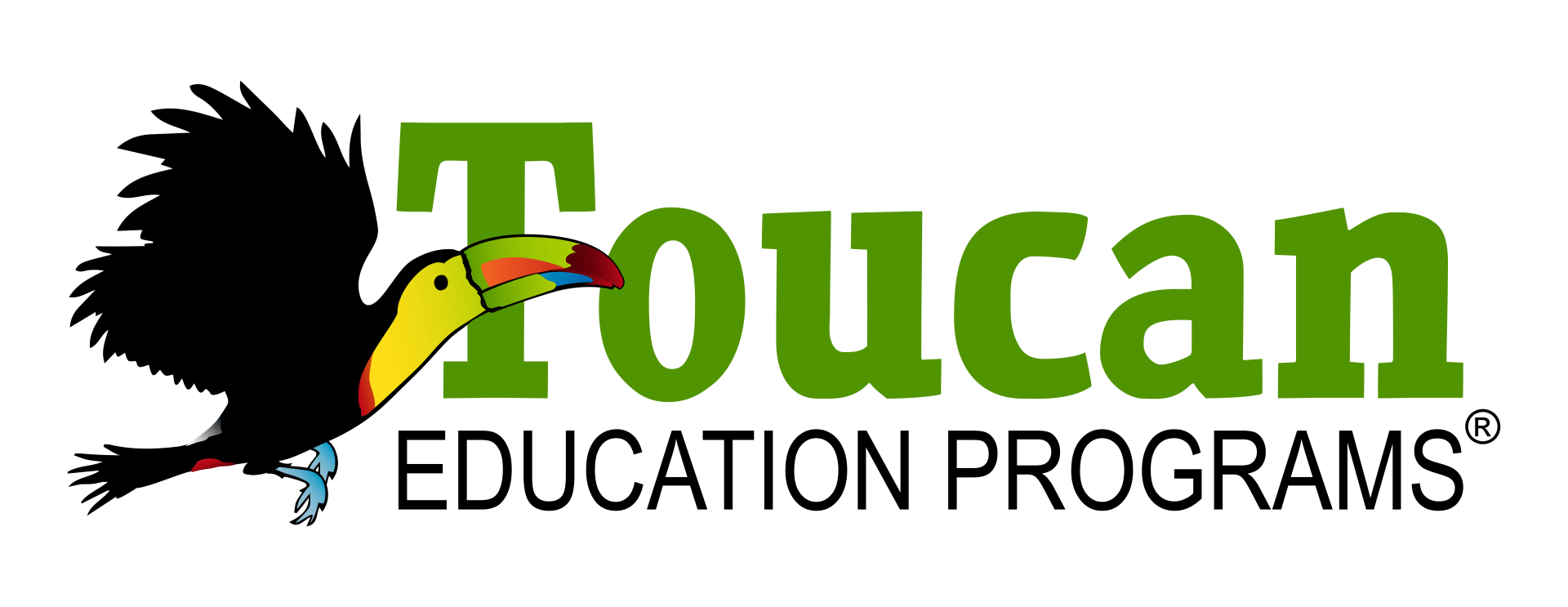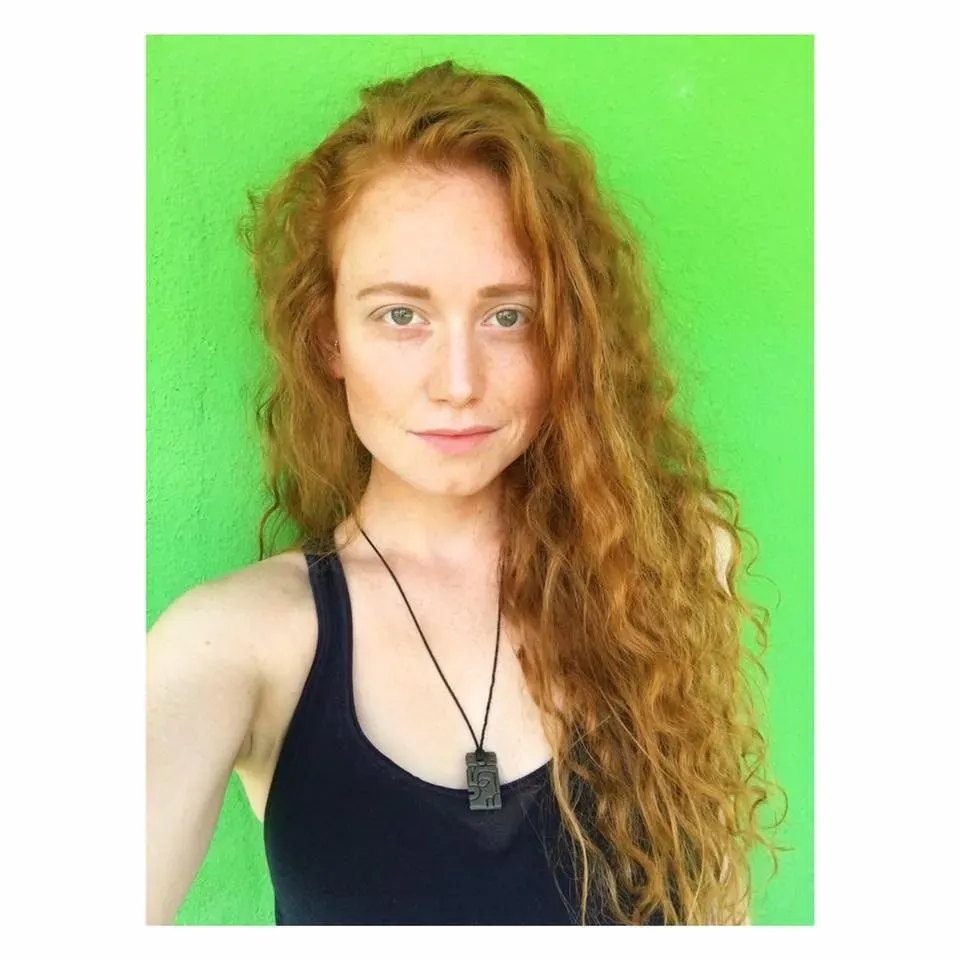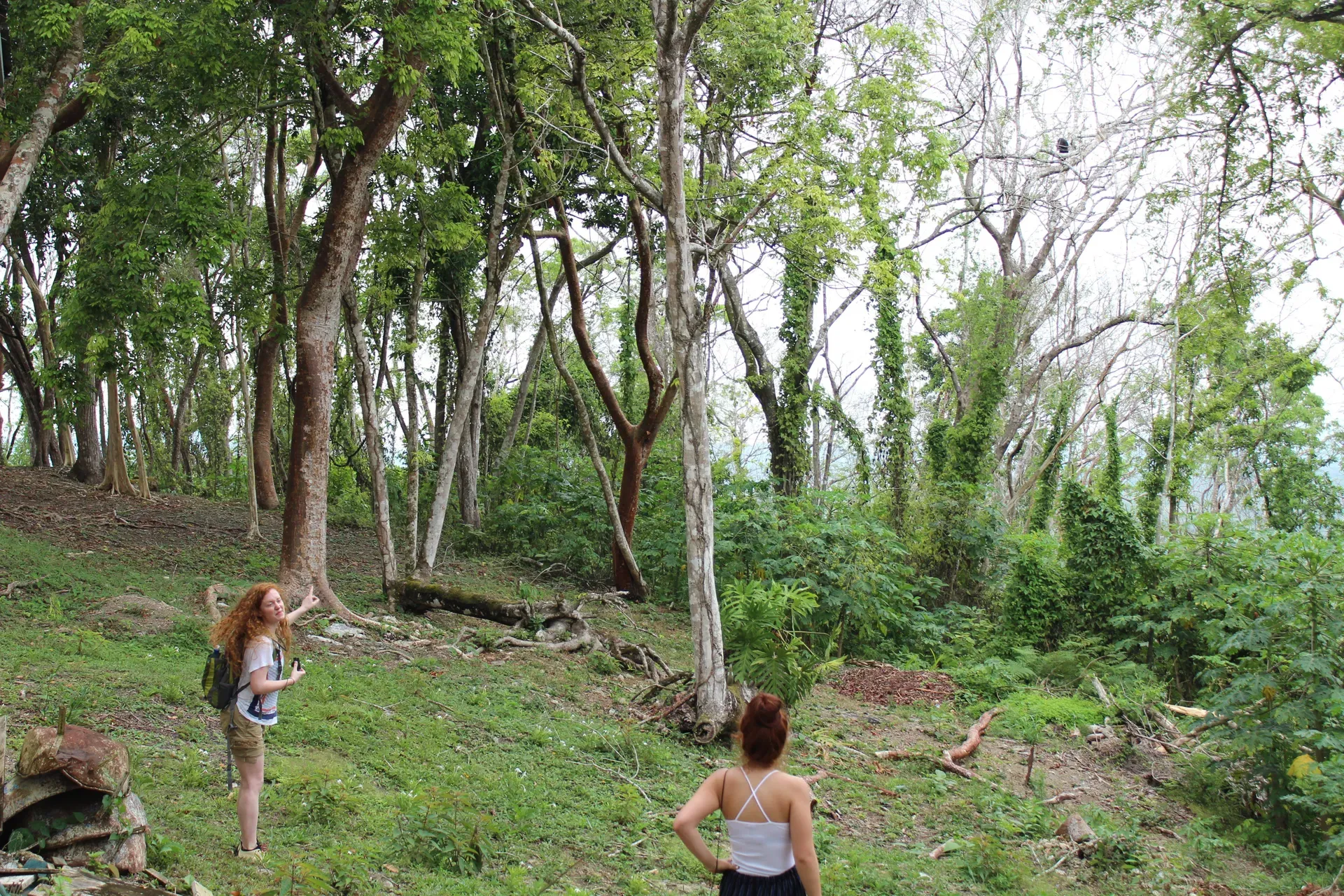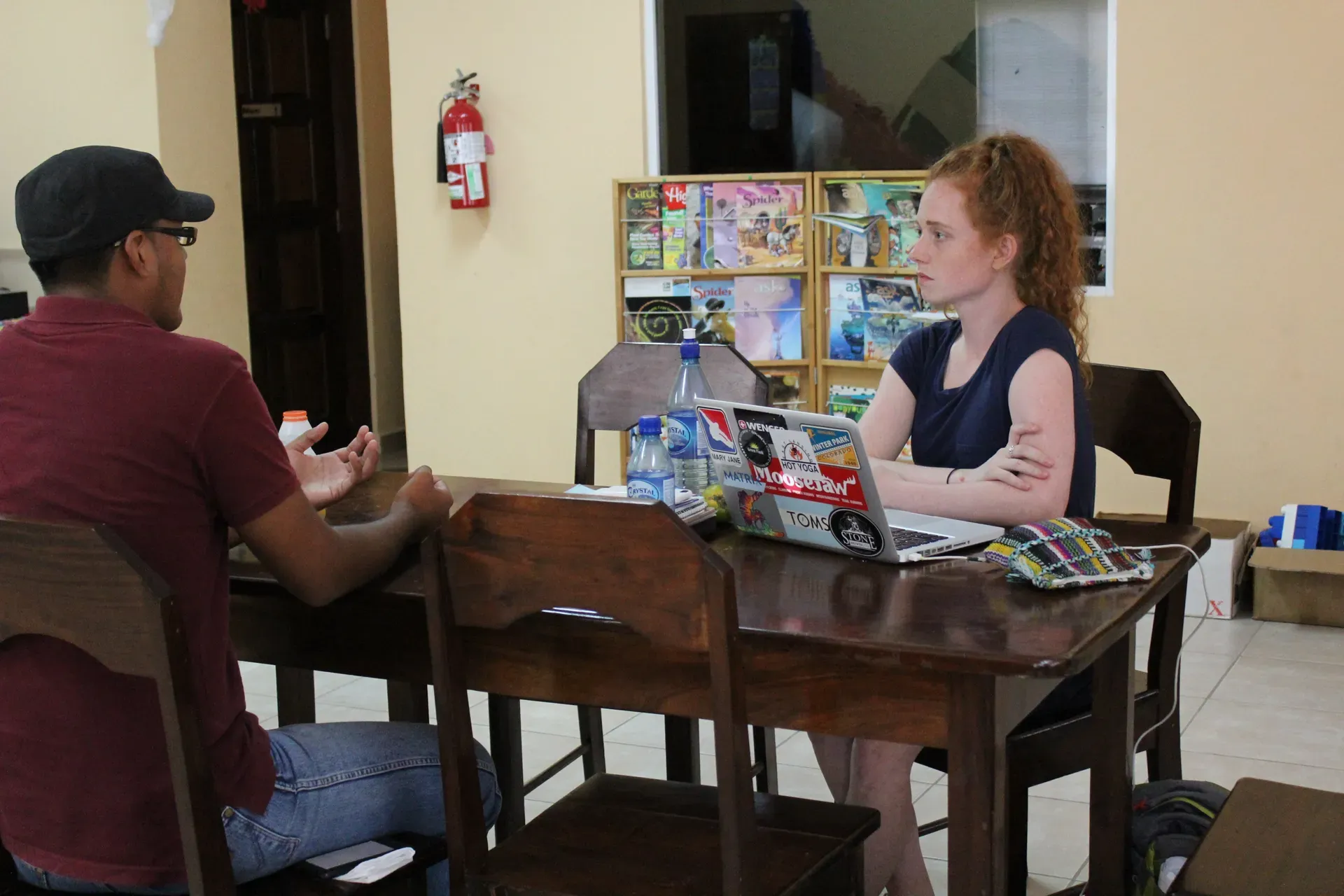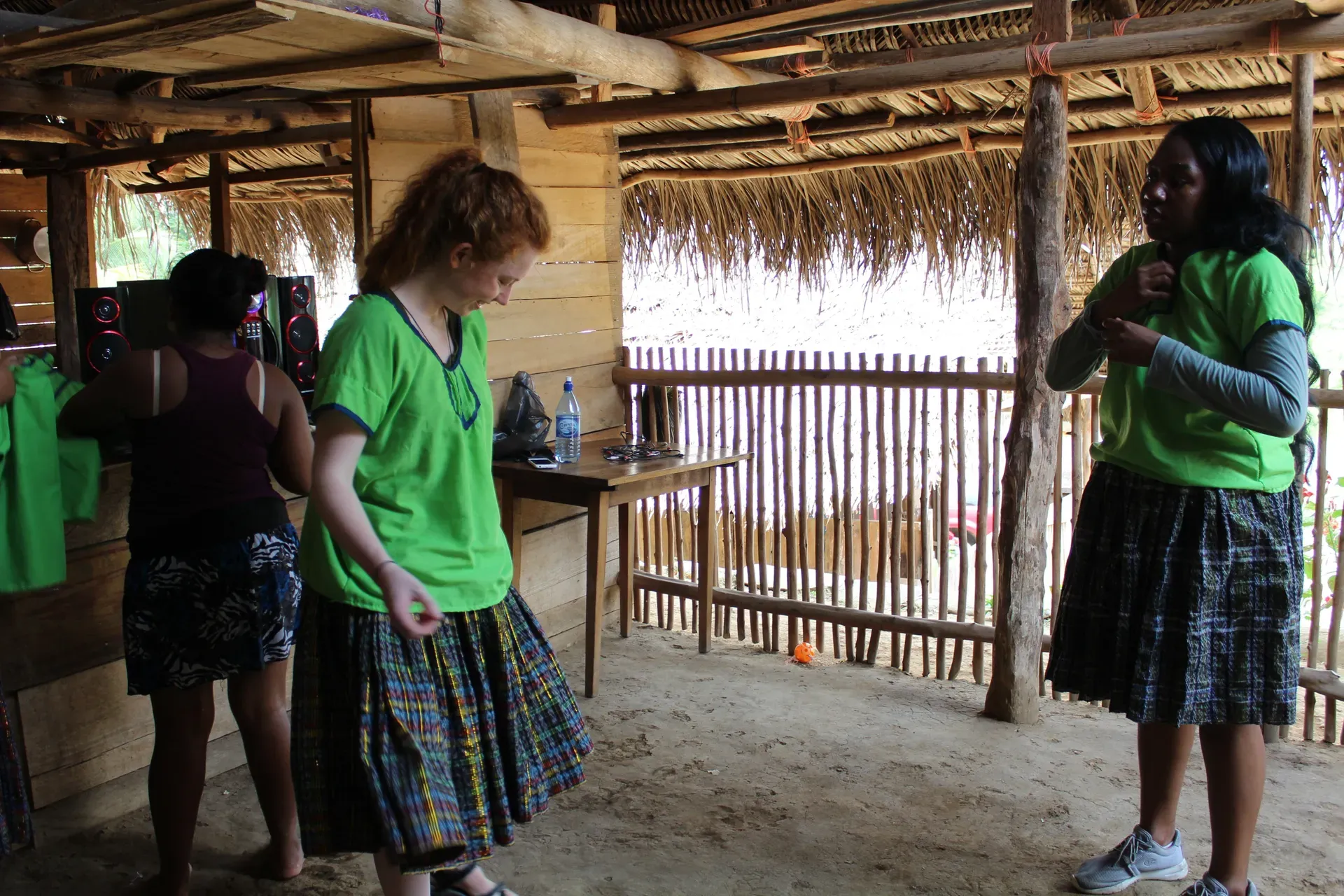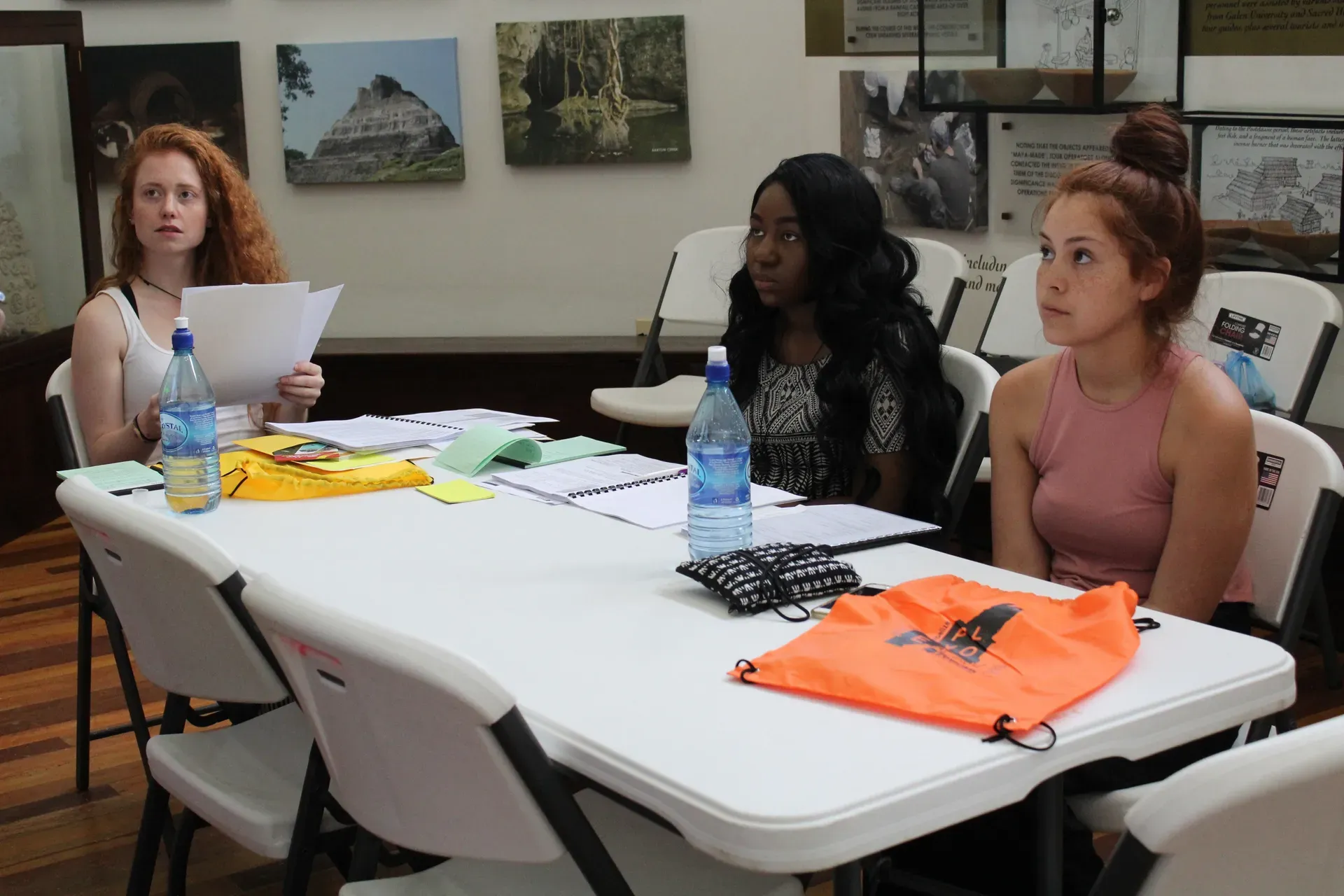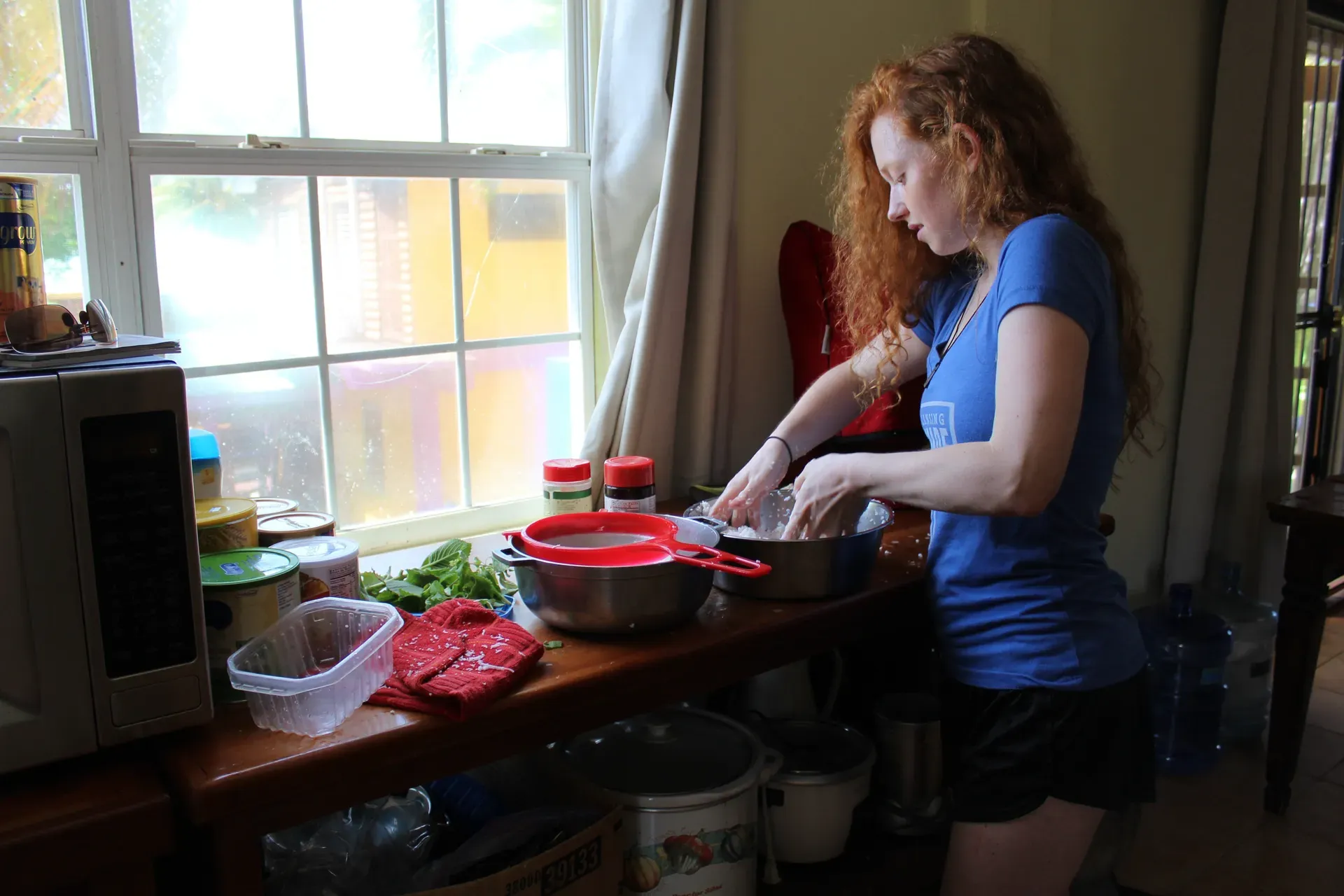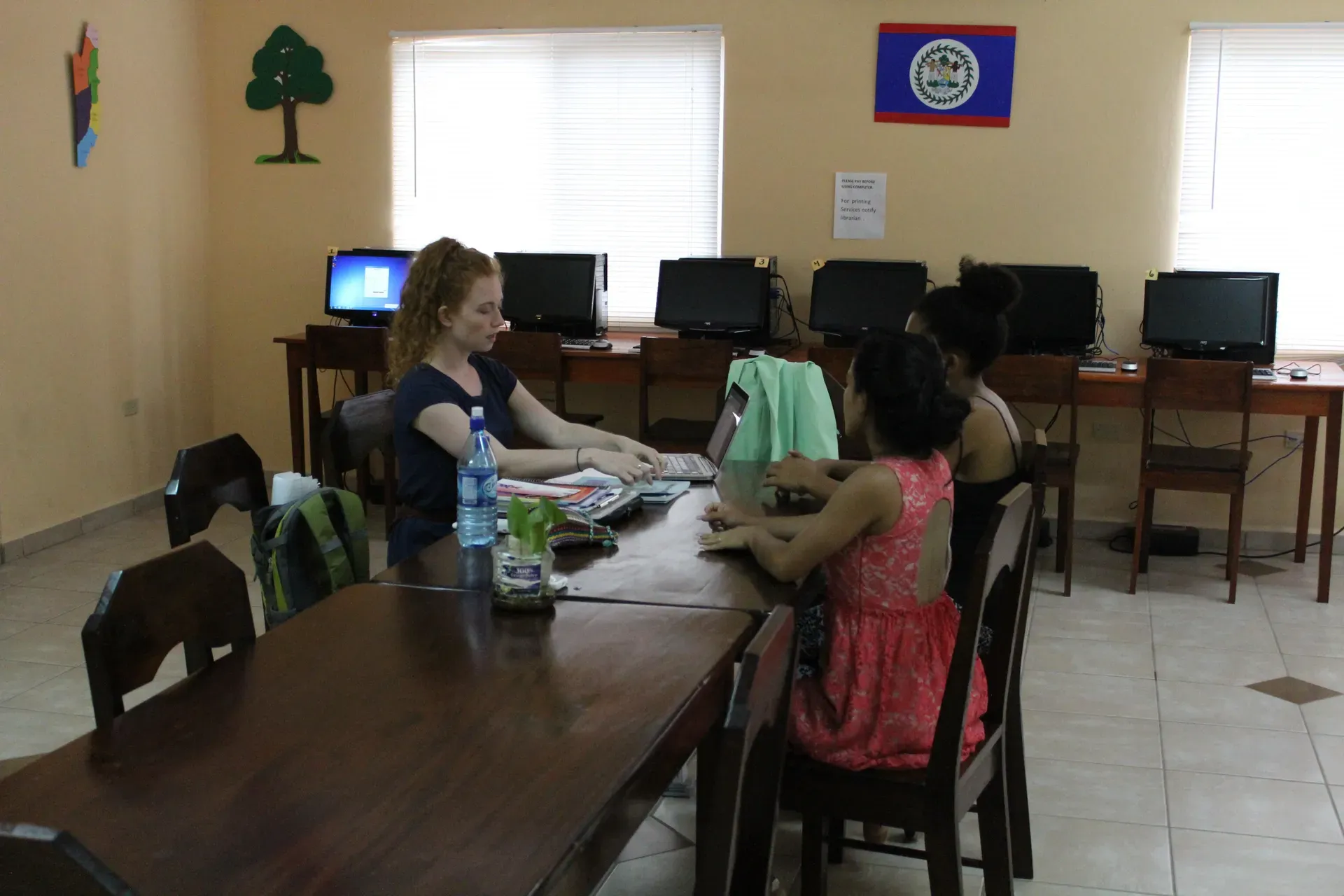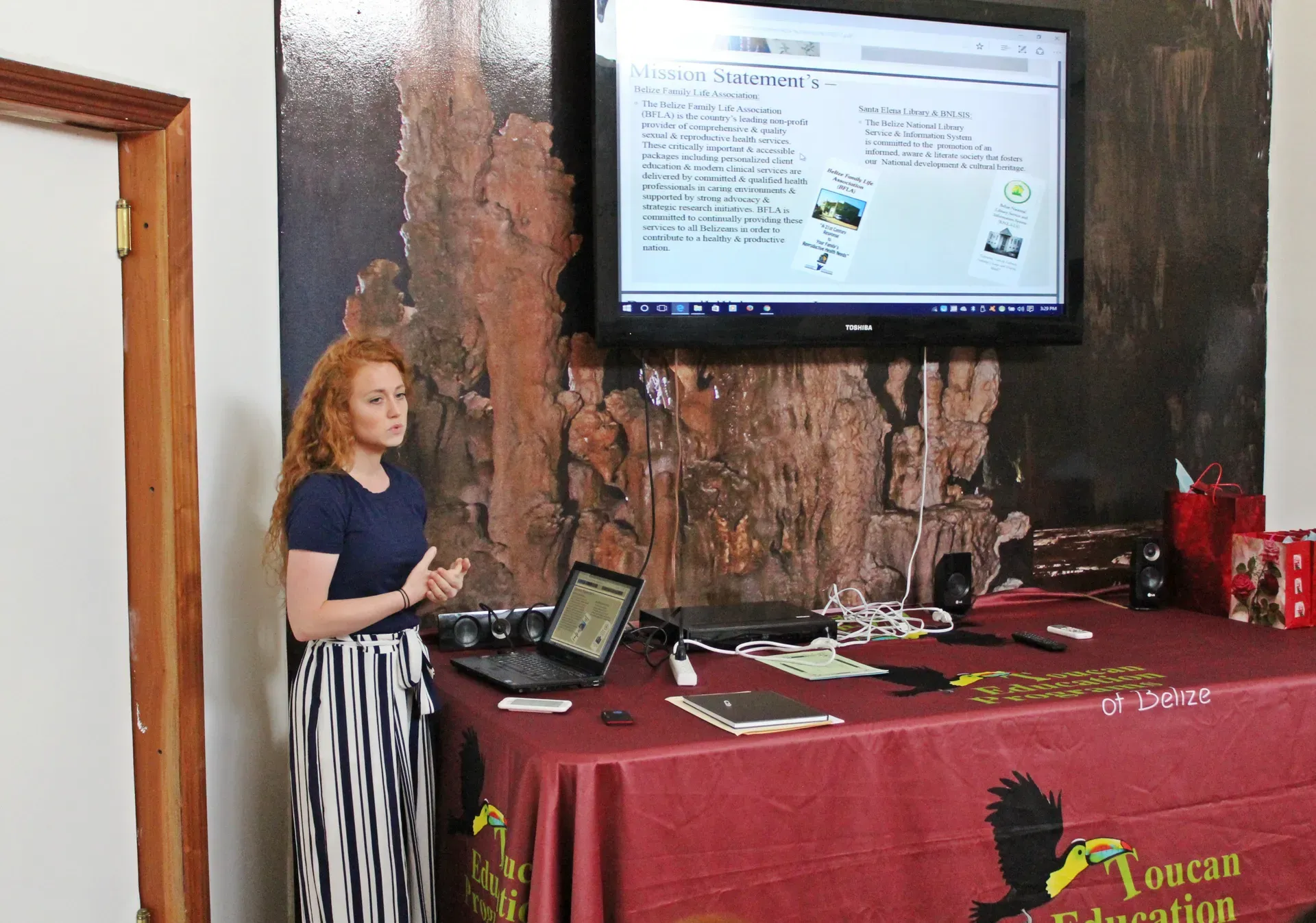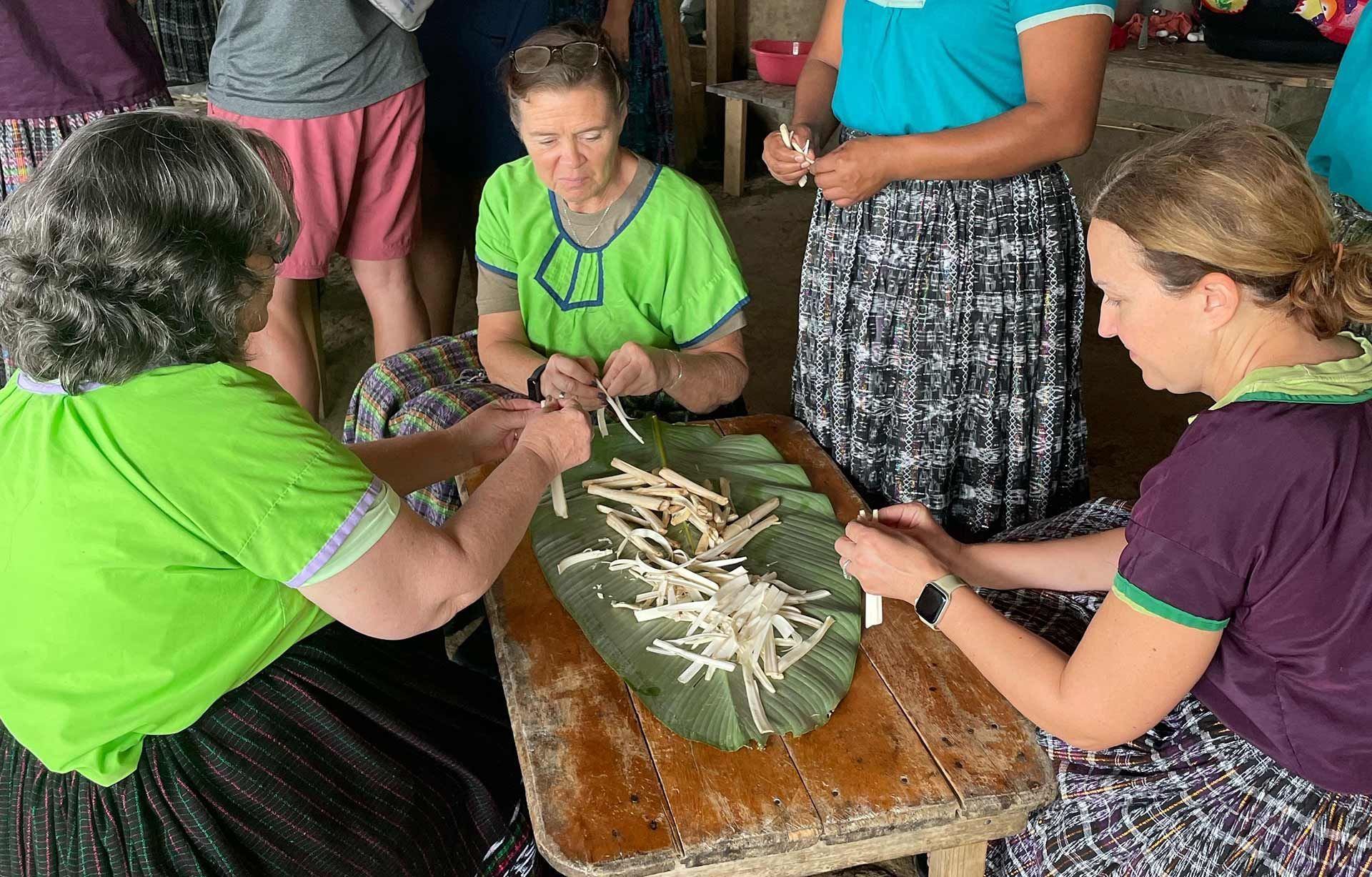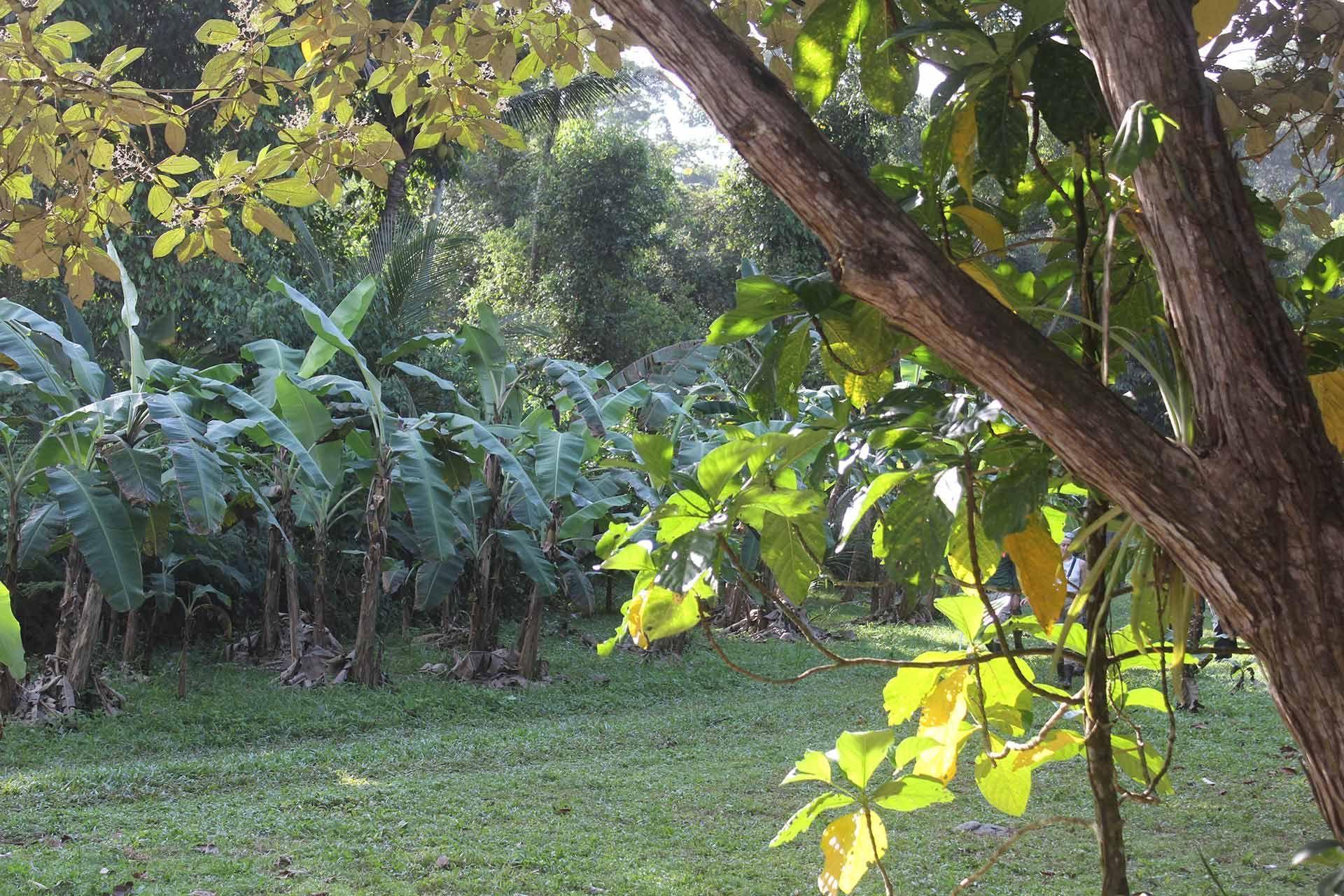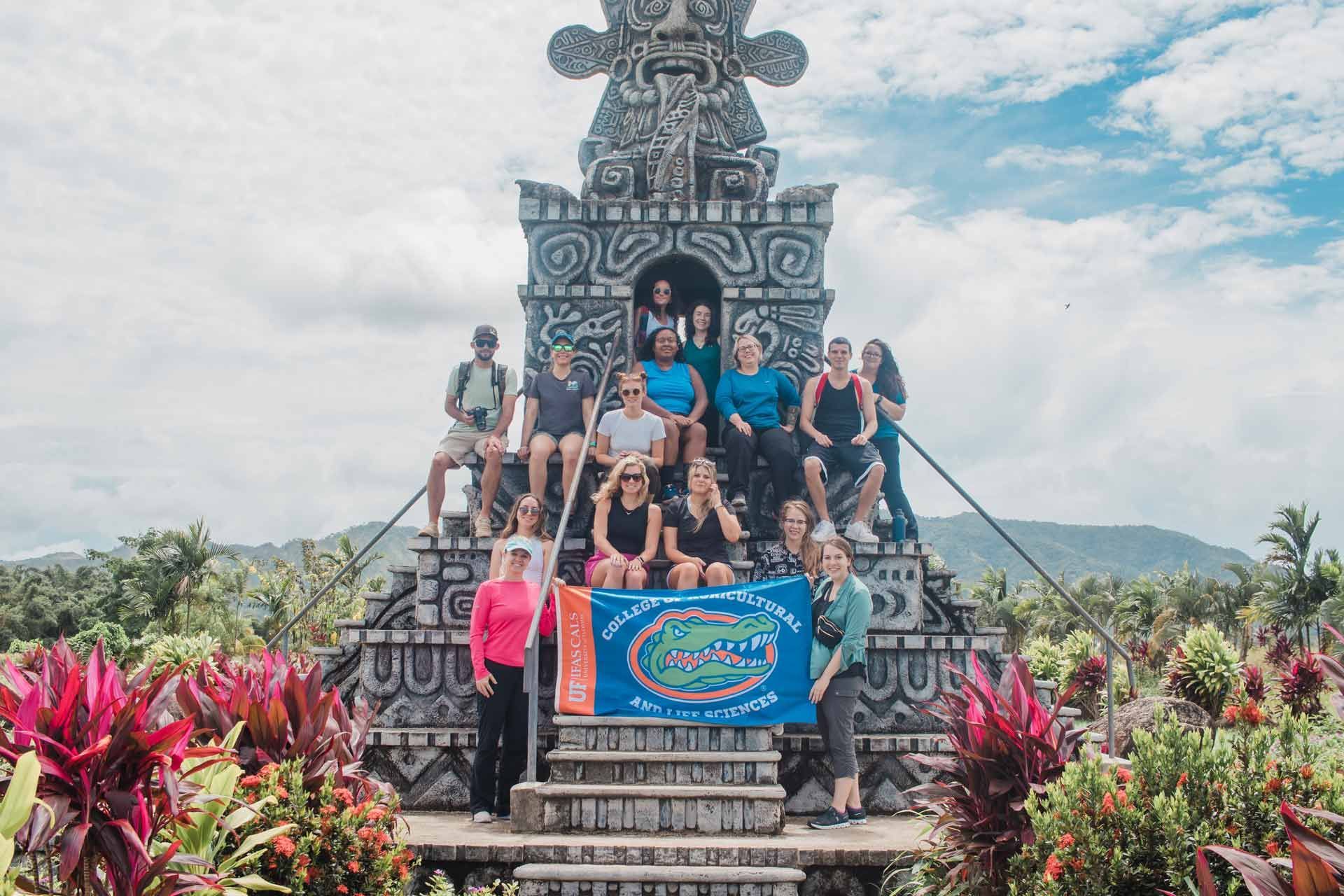Toucan Education Programs Alumni Spotlight with Sara Burnosky
Sara Burnosky
Tell us about yourself before coming to Belize.
Before my visit I had little experience traveling outside of the U.S. My college career had been a rollercoaster ride that I had recently begun to claim control of.
I originally came to MSU on a field hockey scholarship but after a year and a half, it was clear, sports in this capacity were no longer the right direction for me and that acceptance came with the startling questions of “who am I?” and “what do I do now?”.
I had never been a strong student, the classroom had actually been a large anxiety trigger for me. I had frantically changed my major 3 times in hopes of experiencing some “that’s it” type revelation, and after almost finishing a history degree, to the dismay of many family members, I withdrew on a medical leave from the University.
For one year, I decided I was going to “date myself”. I was going to give proper time to understanding my own frustrations, fears, and interests.
The year I spent introspectively rewiring life, I firmly held onto accountability. This is where I realized I was in charge and no one or thing, could be my excuse or on the flip side, be given the credit for where I ended up.
I re-enrolled in school, I changed my major again, but this time the decision had conviction behind it. My grades did an aggressive 180 and doors I thought sealed, began to open.
Sara and Nora observing Howler Monkeys during on-site orientation activities.
Why did you decide to intern abroad in Belize? What or who inspired you?
Belize became one of those “doors” that opened exactly at the time it did, because it was meant to.
I received an email from Dr. Fredy Rodriguez, a professor I had the privilege of learning from, someone I have a great respect for, and who is familiar with the work and topics I want to continue with.
It wasn’t until the very bottom of his outline did I connect his reason for the suggestion. Among the listed topics pertinent to the program, second to last included, “those interested in supporting organizational efforts to address social issues such as gender based violence.”
As I have progressed through my education as an Anthropology major I have gravitated towards a deeper focus within gender dynamics and public health.
Gender violence is a pervasive, multivariate, epidemic. While I learned more about the consistency in the overall structure of gender violence, I read and observed the ways of women’s second class position to men in society.
I began to question why males were largely responsible for the perpetration of violence time after time? Why, not to be confused with how, was violence against women an issue among the sexes seemingly regardless of age, financial status, education level, race or ethnicity?
Sara interviewing Belizean youth for her internship project.
I found the conversation at some points in my Women’s Studies courses to be counterintuitive. The discussions focused on either historical injustices, legal trajectories, or circled around assigned books that detailed accounts of sexual abuse and stages during someone’s healing processes.
While rhetoric was discussed I tried to bring a critical lens to what was being uniformly accepted among my classmates, that “men are perpetrators and must be stopped”.
I felt stuck, frustrated. I honestly felt panic. I could not accept the feeling I had when I would walk out of those classes, but I was not sure where to go. The empowered attitude I was hoping to claim from these courses remained out of reach.
Toucan Education Programs (TEP) was offering a chance to come to Belize and work in a highly personalized way on a difficult topic to gain communities interest in, but they had the communities interest and were asking for help.
I had never thought about traveling to Belize but it is for that very reason, I found myself asking for more information.
The trip being categorized as a pilot program made it even more alluring to me. I interviewed to speak more on the topics I was interested in and TEP formed a program based off of this information. I finally felt like I would have an opportunity to look and even further implement ideas with gender dynamics from the view I wanted to.
What did you want to get out of your internship in Belize?
My goal was to gain experience as a researcher, confidence in the ethnographic process, and to really test the knowledge that I had acquired during my undergraduate experience, outside of my own environment.
I also simply wanted the chance to travel and meet new people.
Sara and MSU colleague Ty'esha during cultural learning weekend activities.
What was your first impression of Belize?
Exact first thought stepping off the plane: Did I just enter a sauna? I remember we stopped at a place to eat on our way from the airport to San Ignacio.
I have always been attached to a camera, taking pictures everywhere I go but I was somewhere between obvious excitement and a blissful calm, unconcerned with my lens.
Sara participating in on-site health and safety orientation with MSU colleagues.
The environment of the open air restaurant and the lush forest that was growing all in and around the building was something I had never experienced.
Rainforest Cafe will never be the same now, I guess that’s just something I’ll have to live with. While listening to Elissa our support staff, explain the difference between beans and rice, and rice and beans, (which if you want a good meal, is really important, people) and the natural juices I did not recognize, I had never been more truly in the moment, and it set an amazing precedence for the rest of the trip, to be in the moment.
What was most challenging about your experience in Belize and how did you overcome it?
My most challenging aspect of the trip was the disagreement my body and the Belizean heat had.
I am a very active person and naturally wanted to walk everywhere, climb everything, and explore. What I did not consider was that my body needed time to adjust and was taking a bit longer than I would have liked.
Learning however to stay in the moment, I decided this was not something that I would fixate on. One of my supervisors, Nurse Witz, connected me to a cab driver named Mr. Guerra.
Mr. Guerra was a retired police officer and a trusted friend of Nurse Witz, she assured me I would be safe in his care.
I would call him some days two or three times and he would always be there. He assured me that if I or my two other classmates were out every late or stranded to call him. I cherish those conversations and that we had, getting to know one another.
I would have never met him if I had not had to cab.
What was the most memorable experience you had in Belize?
One of the first tasks upon arriving in the sister towns of San Ignacio and Santa Elena, was the scavenger hunt.
I will be the first to admit my inability when it comes to directing myself anywhere. So, one can imagine the emotional turmoil felt upon gazing at the packet of clues with instructions aiming to familiarize myself, Nora, and Ty’esha with the Cayo district. Maintaining a smile, I decided this is what marsupials must go through once their mothers decide the whole pouch joyride is over.
I took the packet and watched the TEP staff leave. Initial thoughts of, “how on earth was I and the two girls I had just met going to accomplish ALL of these clues?!” and “... WHERE are the street signs in this country??”
However, managing the mindset of fight or flight, one by one my team and I answered the questions, all of them. I realized how important that moment of fear was for me.
I was in a new environment and needed to start internalizing my motto, ‘get comfortable with the uncomfortable’ if I wanted to accomplish the goals I had set.
Sara preparing fresh coconut milk for a traditional Garifuna dish.
Pushing my fears of looking like a silly confused American aside, I began walking up to places and talking. Talking lead to smiles, and smiles lead to laughing.
I remember a man shouting from a balcony that had been watching us run circles, “what are you looking for now… it is that way girl!”
Would you consider interning or service-learning in Belize again?
Taking into consideration that I was holding back tears on the way to the airport to go home after a month of staying in Belize, yes.
I very much so have the goal of returning to Belize and continuing work that I have started there in some capacity, when the chance presents itself. I understand now more than ever that “home” is a feeling, and I very much so felt at home while there.
What do you do now? How has your time in Belize influenced your life today?
Currently I am taking a gap year before I go back to school. I am involved with a film entitled Midwest Broken Mirror Project (MWBM). The project is an attempt to see body image through multiple lenses of diversity.
Our goal is to work with 17- 20 unique individuals throughout the Midwestern Region to create a photo - video project that takes this topic to new heights!
The goal is to showcase how our culture, mental capacity, physical disabilities, and socio-economic class contributes to the development of our unique body image and struggles.
I also substitute teaching at the moment. I decided to do this because as a researcher wanting to speak more on education reform and taking what I feel are reactive approaches to proactive approaches with gender violence I need to understand what it is like to work in the current USA's education system.
Children spend a lot of time with our educators and the systems we have created. Belize has given me a firm hold on my self-confidence.
This happened during a very specific moment at Santa Elena’s library when I was speaking to some of the youth. I began with a series of questions I had specifically designed with a hope in mind.
First I aimed to understand the girls opinions of current female and male dynamics. This was not only for my benefit but also so they could develop a base during this conversation. As we progressed the questions were placed in a way to challenge the previous statements. The “why” to their “what’s”. I watched as they doubled back all on their own.
Without me explaining they began to look at me, all at once I saw it, they made the connection. Two girls instantly exclaimed, “Now I understand why you were asking those earlier questions!!
It’s all connected!! We are connected! It’s a cycle that takes both men AND women to change their understanding of one another. It begins when we are little, it’s the little things we ourselves unknowingly reinforce every day.”
Sara talking with Belizean youths.
This day I proved to myself that I could effectively listen to the voices of our future and guide them to deeper avenues of understanding on gender relations. I’m proud of Belize for allowing the engagement of their young people on S&R talks.
This country’s activists understand the importance of learning from the perspectives of their young people. Only then can we begin to effectively help ourselves create healthier life experiences. ⚤⚥
What advice do you have for students considering studying abroad with TEP?
Do it. First off, TEP’s staff never for a second made me feel as if I was on my own. Their pre-departure communication allowed for a more personalized experience and study.
One of the biggest pieces of advice I can share would be if you stay near a market, utilize it; and by “market” I am speaking about a place that on the weekends people come to sell mainely food but many other goods are also available.
The food during my trip was amazing but like anywhere dining out gets expensive. I would suggest maybe looking up a few recipes and familiarizing yourself with them.
It doesn’t hurt that english is Belize’s official language and makes certain aspects of the experience easier if you are like me and haven’t quite picked up a second language yet.
Sara delivering her final presentation to host organizations and colleagues.
Updates since this interview with Sara.
Since this interview, Sara graduated from Michigan State University. She lived one year in Honduras teaching at Mayatan Bilingual School.
Her passions and focus centers around the intersections of public health and gender roles. Also, in her off time, she enjoy practicing yoga and climbing.
Her goals include achieving a Ph.D. and becoming an influential voice in gender equality.
Sara was also a guest on the Toucan Abroad Podcast. Listen to Embracing Your Study Abroad Experience here.
